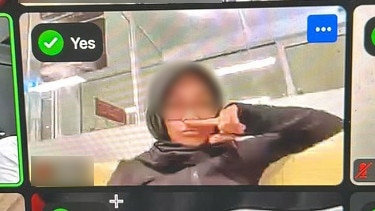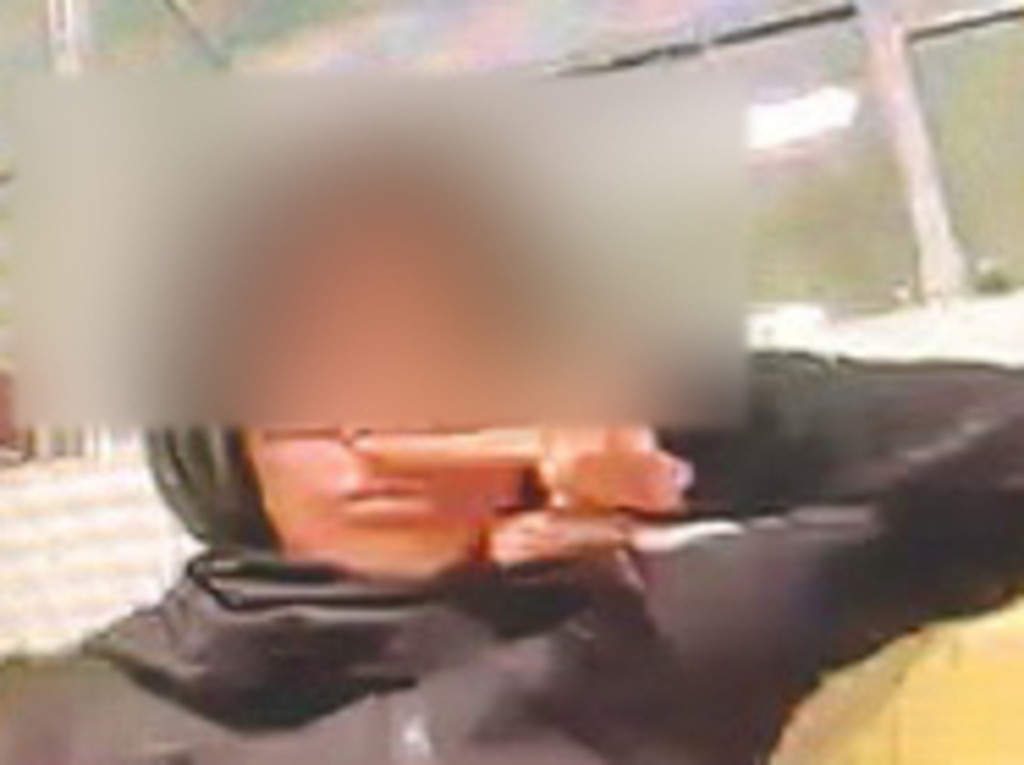Student meeting probe found ‘no Nazi gestures’, ANU says
The ANU says its students did not perform Nazi-inspired gestures at a mass online student meeting, while conceding footage ‘on a superficial level’ looked as if they did.

The Australian National University says its students did not perform Nazi-inspired gestures at a mass online student meeting in May last year while conceding that footage “on a superficial level” made it look as if they did.
The Australian revealed last year that the university had begun investigations into the incident, where footage during a mass online student meeting showed one participant who appeared to perform a Nazi salute and another who brought their finger up below their nose in a way that made it look like Adolf Hitler’s moustache.
That meeting was dominated by discussion about the pro-Palestine encampment protest that had been pitched on campus. In that meeting, Jewish students brought an ultimately unsuccessful motion asking the student association to – among other items – condemn Hamas, condemn the use of hateful slogans such as “intifada”, and acknowledge there was a “toxic culture, including anti-Semitism, within activist circles at the ANU”.
ANU vice-chancellor Genevieve Bell fronted the parliamentary inquiry into anti-Semitism at universities and said her university’s investigation had “found that (Nazi-inspired gestures) did not, in fact, happen”.
“The investigation … found there was not … an incident,” she said.
Professor Bell was also grilled on how ANU student Beatrice Tucker, who told ABC radio in 2024 that Hamas deserved “unconditional support”, had their expulsion from university overturned and then ran for president of the student association.
“I try to think about what it would be like to be a young person in a moment of stress and thinking about the things that you care about profoundly,” Professor Bell said.
“Do I believe that we should be publicly supporting Hamas? Of course not. Do I wish that they hadn’t said that on radio? Indeed.
“But part of how universities need to function, and one of the things I think demands constant clarity and attention, is what is actually capable under the banner of free speech and academic freedom and I think that’s the thing we need to constantly test.”
ANU leadership, when pressed on how its investigation found the student meeting gestures had not been Nazi-inspired, declined to talk about “individual cases”.
Jewish Labor MP Josh Burns, chair of the committee, continued to question Professor Bell.
“I’ve just had a look online again at the vision … I mean, what else was it?” he asked.
Professor Bell replied: “We don’t actually discuss pieces of individual cases but the reality is we have a fulsome process that we work through here, which involves … collecting multiple other pieces of evidence, multiple other pieces of vision that weren’t made as part of those news accounts, pieces of interviews with people that were around those people at the time.”
“How was that not a Nazi salute? What was it?” Mr Burns asked again.
Professor Bell responded: “Mr Burns, I know this is an unsatisfactory answer but the reality is our policy is not to discuss individual cases. What I can tell you is that …”
Mr Burns said: “You did before, vice-chancellor. You said it wasn’t a Nazi salute.”
“I said the finding was that there was not a case here,” Professor Bell said.
“That’s why we do a very thorough investigation, because on a superficial level we have what appear to be terrible, terrible anti-Semitic incidents,” deputy vice-chancellor Grady Venville said.
University of Sydney vice-chancellor Mark Scott was also called before the hearing.
He said campus security had recently been beefed up “in response to horrific anti-Semitic attacks we’ve seen in Melbourne and Sydney in recent months”.
“There is no more important responsibility that I have as vice-chancellor, that our executive team has, that our governing senate has, than to create a safe and welcoming environment for all students and all staff so that those who come and are part of our community of scholarship here at the university can do so and take advantage of all the opportunities here and engage in the spirit of debate and discussion that invariably is part of university life whilst feeling protected, whilst feeling supported, whilst feeling assured,” he said.






